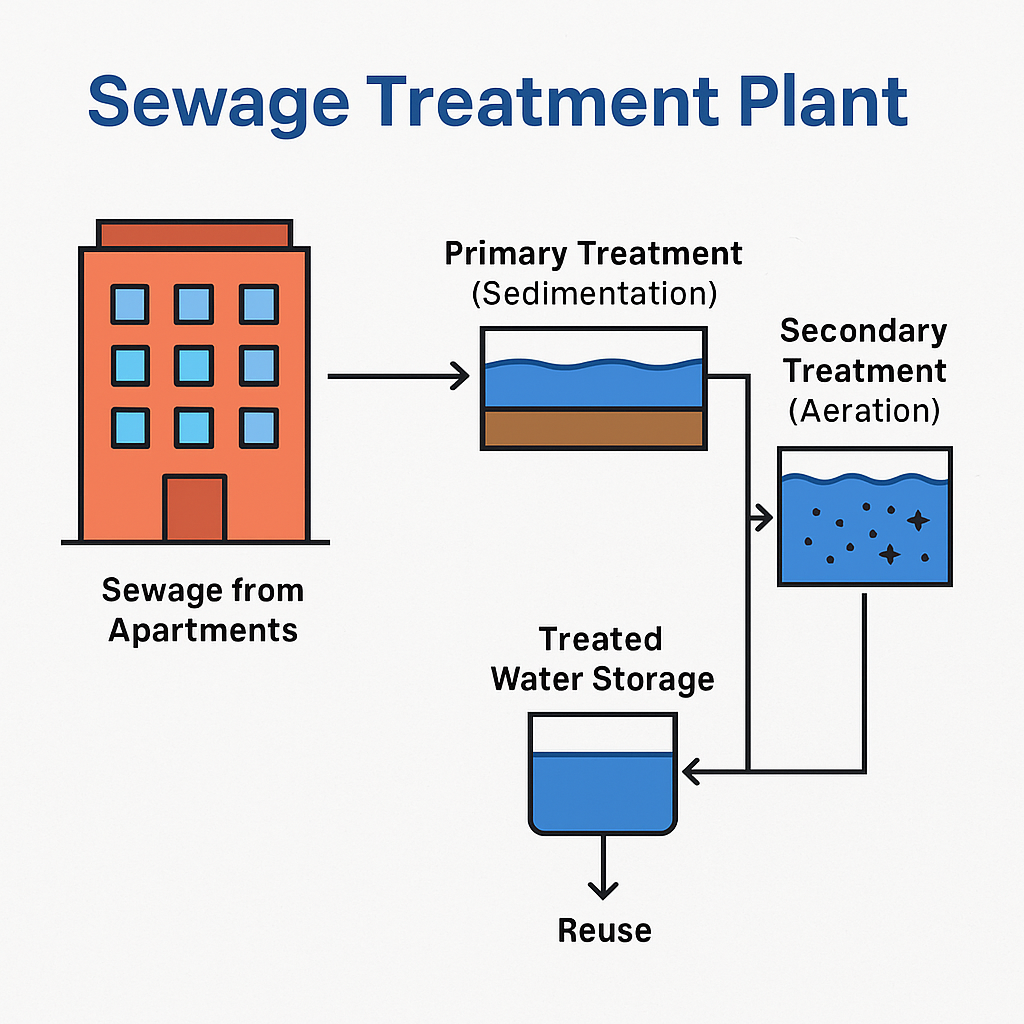What is a Sewage Water Treatment Plant?

If you live in an apartment complex, you might’ve heard about the “STP” in your basement or behind the building. But what exactly is it?
Let’s keep it simple:
An STP (Sewage Treatment Plant) is a system that cleans all the dirty water from your toilets, bathrooms, kitchens, and washing machines — right inside your apartment property.
Why do apartments need it?
- Legal Requirement – Most local authorities (like BBMP, HUDA, etc.) require STPs for residential buildings with more than a certain number of units (usually 20+).
- Water Reuse – Treated water can be reused for:
- Gardening
- Flushing
- Car washing
- Protects the Environment – Prevents untreated water from polluting nearby lakes or groundwater.
How It Works in Apartments (Step by Step)
- Collection
- All used water is collected through underground pipelines.
- Primary Treatment
- Filters out solid waste, grease, and other heavy particles.
- Secondary Treatment (Biological)
- Bacteria break down organic waste in a tank with air (called aeration).
- Final Treatment
- Water is passed through sand, carbon, or UV filters to kill germs.
- Treated Water Storage
- Clean water is stored in a separate tank for reuse in gardens or flushing.
- Sludge Management
- The waste (sludge) is dried and removed every few weeks/months.
Benefits for Apartment Residents
| Benefit | Why it matters |
|---|---|
| Lower Water Bills | Reuse water for non-drinking use |
| Eco-Friendly Living | Reduces pollution & saves water |
| Legal Compliance | Avoid fines & meet local norms |
| Long-Term Savings | Less dependency on tanker water |
Final Thoughts
A sewage treatment plant in your apartment is like the building’s own water-cleaning machine.
It turns waste water into reusable water, helps save money, and protects the environment — all in the background, every single day.

